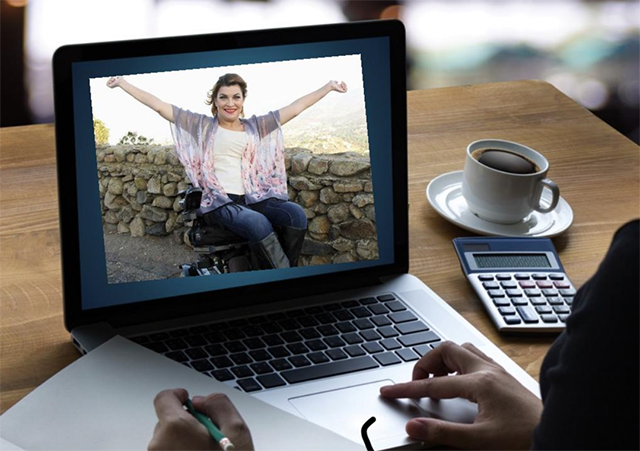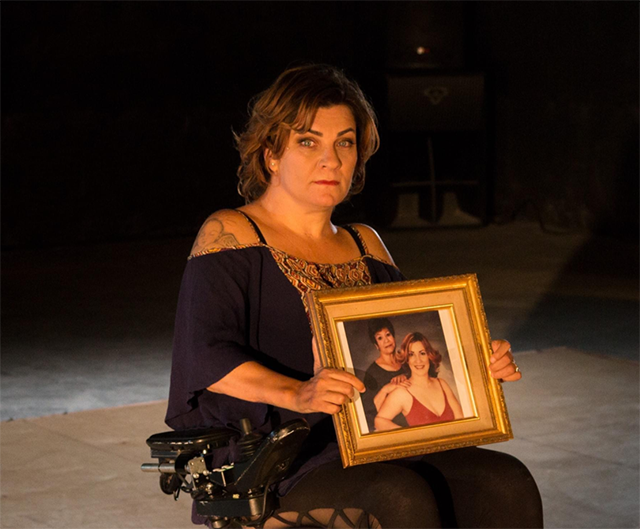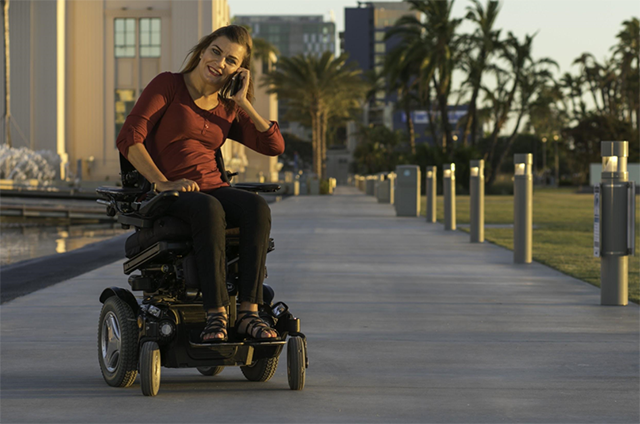
About the author:
Margarita’s spinal cord injury occurred in 2006 after being shot in the neck. With three young children, and the loss of an unborn son, Margarita fought to survive and care for her family. After her injury, Margarita experienced many of the frustrations and emotions related to the loss of mobility – which feels similar to the shelter in place orders everyone is facing today.
Today, the world is experiencing a little bit of what anyone who has ever suffered a catastrophic or life-altering injury experience. The moment I was injured, I was stripped of my ability to make decisions for myself or my three children, including decisions regarding my finances and medical care. I lost my job and had to reinvent myself to gain new skills and make myself employable again. Balancing the need for higher income, and not losing my benefits because of my income, has been my biggest hurdle. I can choose to limit my income to rely solely on government assistance (which is not enough) or risk losing medical coverage to make enough to cover essential bills like rent, utilities, car insurance, and food. Most times, there is not much left for clothing or entertainment. For some reason, sporting the newest fashion and spending lots of money on entertainment is not as appealing as it used to be. I now value more important things in life like spending time helping my daughter teach her daughters to read and write, or offering peer support to people who are newly injured.

COVID-19 has caused us all to ”shelter in place” and that can lead to isolation in our own homes. This article was not meant to throw a “pity party” or make people think that life after spinal cord injury (SCI) is depressing, but honestly, I had a way more active social life before my injury with lots of friends! My closest friends and family were there for me in the beginning and visited me in the hospital. Visits and communication eventually stopped and are now mostly limited to social media posts and an occasional private message. I have friends that still cry when they see me in person, and my mom still suffers the loss of the ”me” I used to be: an experience I have heard other SCI friends share as well. I attribute this form of social distancing to ableism and people not knowing how to engage and interact with someone who has a disability. People still seem to think that having friends that are disabled might make them disabled too. Eventually, I created new friends and became accustomed to working from home and spending a lot of time at home alone. Whenever asked what advice I would give someone who is newly injured, I always say:
“Peer support is key for gaining resources and understanding the many transitions you are going to experience, but having a solid foundation to fall back on for the moments when you are all alone is what will get you through the critical moments you will encounter. For me, my foundation is my faith. It gives me the hope, courage, and love I need to adapt and move on”.

Maintaining social distance these days is key to reduce the spread of Coronavirus. But ”social distance” does not mean emotional distance. Stay connected to those you love and take time just to be, not do. It is also time to acknowledge ”oneness.” This virus attacks everyone regardless of age, background or ability. We are all suffering from this pandemic! Leaning on one another will be the hope we need to get through this crisis. The world is reinventing itself much like I and others who have gone through similar health crises have had to do, but now the battlefield is almost equal. The world is getting a taste of life as a person with a disability with similar fears:
I don't believe trauma is something you overcome. For example, my wheelchair itself is a constant reminder of what I went through because it's with me all the time, and I am always asked, ”Why are you in a wheelchair?” In sharing my story, though I relive my trauma over and over again, I have chosen not to be a victim. This choice has made me resilient! I have learned to embrace my new lifestyle, adapt to my income, and even turn my story into something that helps others get through the challenges they are facing. I believe this pandemic is going to make the world more aware of its ableist mentality, and overall more resilient. People have begun to be more grateful for the small things (family time, nature walks, and homeschooling) and have more empathy for those who have less. Yes, unfortunately, there are people freaking out and depleting the toilet paper supply, but overall the world is coming together, and humanity will win this biological war against COVID-19. The hope is that with this experience, people will be more inclusive and not pity those with a disability, but rather be more empathetic of the need to create systems and support programs that ensure the quality of life of every individual, by meeting key needs like medical coverage, financial stability, education, and social engagement for everyone.
Editor's Note: Ableism is discrimination and social prejudice against people with disabilities or who are perceived to have limitations. Ableism characterizes persons as defined by their disabilities and as inferior to the non-disabled.